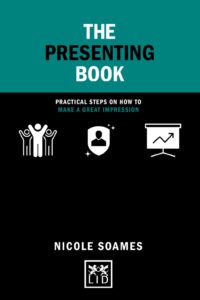|
How to Give a Speech at a Leaving Do for Your Manager
By Guest Contributor Paul Carroll, Member of Toastmasters International
If you have reported to someone for a while there is a good chance that you will be asked to give a short speech at their leaving do. If you don’t do a lot of public speaking, even if you are happy to contribute, it can be a bit of a challenge. To help you prepare here are some tips for preparing a farewell speech.
The structure
It is good to use a 3-part structure:
- Begin with something about your association with your manager (this sets the tone of the occasion and why you’ve been asked to speak).
- Then cover three points of importance. The first may be serious or reflective, but make sure that at least the last one is humorous or light-hearted. For a short speech, you’ll need just three anecdotes to illustrate three aspects or periods of your manager’s career, or three characteristics they’re known for, two proud achievements and something that fell flat (you get the idea). For a longer speech you could make the stories longer or add another anecdote to each section.
- End with a toast which summarises your farewell.
Gathering material
As you’ve been working with your manager for some time, you’ll have plenty of experiences to draw on. Set a timer and give yourself five minutes to jot down as many ideas as you can come up with. Don’t examine them. Not yet. If it comes into your head, it goes on the list. Just the idea, mind, not lots of detail.
For example, you might remember when the two of you were stuck because of a visa error and spent ages talking to border officials. Scribble down Visa/Airport and move on. By giving yourself a little time pressure, you’ll come up with plenty of examples in a few minutes. You can then review and decided which are best for the occasion.
You can ask colleagues (and also clients and suppliers if they’ll be at the leaving party) who know your manager to suggest the most memorable occasion they can think of. You’ll know which to include when you review the overall balance of your speech.
Your stories
Many businesses hold teambuilding events. If your usually dignified manager was left dangling on a zip-wire (remember Boris Johnson promoting the London Olympics?) and shouting for help, there are likely to be some humorous aspects to exploit.
But how much detail should be included?
Consider TV dramas. Shows about police, lawyer or doctors don’t show the routine elements of the job. There was never an entire episode of Line of Duty where a witness sat at a table covered in mugshots and looked through them trying to find the shooter!
No, you see a few moments of the witness with the pictures, maybe with a wall clock ticking to establish it’s been a long time. Then the “Aha!” moment.
The point is that you’ll need a bit of shorthand and cut things down to a few elements which establish the context, followed by the revealing part you want to remind your audience about.
For example, I have used a story reminding everyone of that time leaflets had been printed to send to clients about “market volitility “. My manager, then a quiet fresh-faced graduate trainee (with English as a third language), pointed out that “volatility” was misspelt (on the front cover no less). As I had to with my story, you’ll need to decide which details to add, and which ones to leave out. Which adds to the build-up? Which adds humour?
After some time had passed, I thought it was hilarious that nobody had read the front cover and that my now boss (who rarely spoke up back then) pointed it out. Correcting a spelling error “in his third language” was the icing on the cake whenever I retold this story.
The purpose of the event
It is worth considering what a leaving do is for. It’s not something the business sells to customers. It’s not a profit centre. It’s a cost. If they want to lavish money on the staff who are attending they could add it to a year-end bonus and let you decide how you want to spend it. However, that won’t achieve what a group celebration achieves: the bonding of a group. When you appeal to your audience’s emotions by talking about a common experience then you bring everyone together.
Of course, the leaving do is about saying farewell to your manager but it can also help people to bond as a group. Shared experience is the basis of bonding. Again, this can be a serious thing (for example, when a group has served together in combat) but it can also be non-serious. The humour you choose to include can be an important part of your speech that taps into people’s feelings about the organisation.
Finding humour that appeals
If your manager is retiring, it’s not the time for a lot of heavy experiences which appeal to deep emotions. Nor is it the time for metaphorical I-climbed-the -mountain inspiration. As in the outline above, you can remind your audience of a metaphorical mountain where your retiring manager took charge and you all climbed together. However, I recommend primarily focusing on the lighter fun stuff.
Inevitably, what’s funny to a group who experienced it might not be so hilarious to people outside the group. There’s a saying people sometimes use when a funny line fails to create laughter: “You had to be there”. It is a cliché, but when reaching out to your audience it’s very true.
I hope you find these tips useful as you prepare a farewell speech and that you remind your audience of both serious and fun moments.
ABOUT THE AUTHOR

Paul Carroll DTM is a member of Toastmasters International, a not-for-profit organisation that has provided communication and leadership skills since 1924 through a worldwide network of clubs. There are almost 400 clubs and 8,000 members in the UK and Ireland. Members follow a structured educational programme to gain skills and confidence in public and impromptu speaking, chairing meetings and time management. To find your nearest club, visit www.toastmasters.org
Suggested Reading
 Build Your Confidence on Stage covers The Speaker’s Psychology; The Principles of Public Speaking; The Performance Masterclass; and The Profession of a Public Speaker. These pillars will demonstrate how to overcome fear and anxiety, break general norms and stereotypes, analyse the pre, during and post-performance techniques, master the discipline and its practise before you begin to convert everything you’ve learnt into forming a lifestyle speaking career.
Build Your Confidence on Stage covers The Speaker’s Psychology; The Principles of Public Speaking; The Performance Masterclass; and The Profession of a Public Speaker. These pillars will demonstrate how to overcome fear and anxiety, break general norms and stereotypes, analyse the pre, during and post-performance techniques, master the discipline and its practise before you begin to convert everything you’ve learnt into forming a lifestyle speaking career.
 Grace Under Pressure solves this issue by unveiling three areas of training that great speakers use to develop their skills. In the first section, author Lisa Wentz shares techniques that she has developed to help anyone overcome inner obstacles so they can focus on developing their outward presence. The second section outlines how to best develop the physical aspects of speech, including posture, breathing, resonance, and articulation. And the third section centres on delivery: how to use pauses, word stress, and storytelling, among other techniques, to improve your performance from novice to master. This final section offers acting techniques and directorial advice that can be applied to speeches, pitches, presentations and meeting strategies.
Grace Under Pressure solves this issue by unveiling three areas of training that great speakers use to develop their skills. In the first section, author Lisa Wentz shares techniques that she has developed to help anyone overcome inner obstacles so they can focus on developing their outward presence. The second section outlines how to best develop the physical aspects of speech, including posture, breathing, resonance, and articulation. And the third section centres on delivery: how to use pauses, word stress, and storytelling, among other techniques, to improve your performance from novice to master. This final section offers acting techniques and directorial advice that can be applied to speeches, pitches, presentations and meeting strategies.

The Presenting Book is an inspiring and engaging handbook packed with Nicole Soames’ expert advice, practical tools and exercises. This book will teach you how to become a highly skilled presenter in all areas of your life – whether you’re presenting a sales report to the board, promoting your personal brand online, networking at an event or being the key-note speaker at a conference. You’ll learn how to develop your emotional intelligence, capture and hold peoples’ attention and deliver your performance with confidence.
